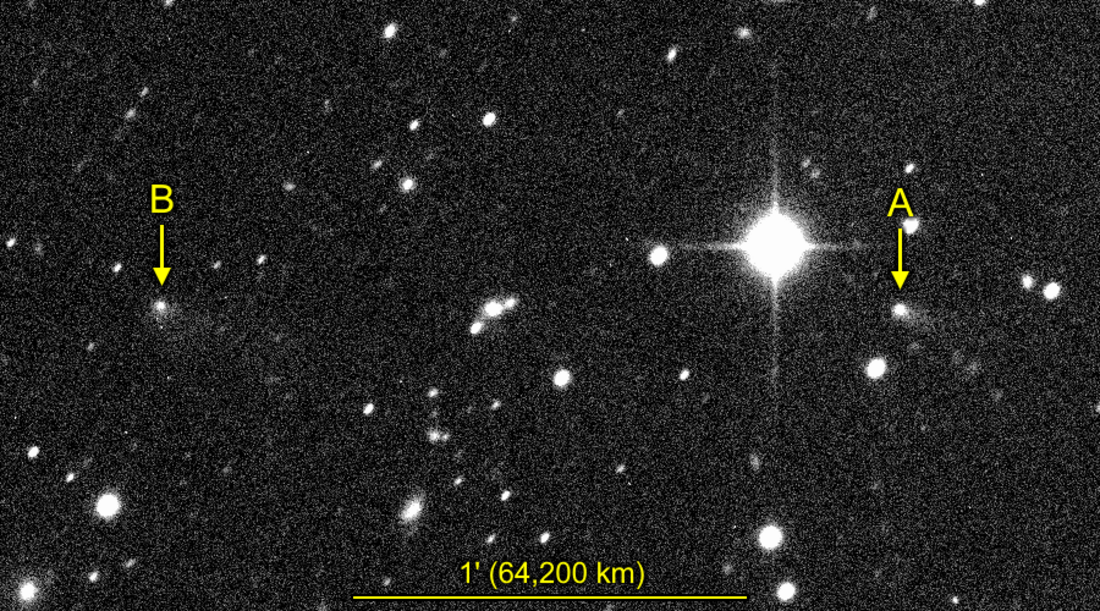Top Qs
Timeline
Chat
Perspective
483P/PanSTARRS
Pair of active asteroids From Wikipedia, the free encyclopedia
Remove ads
483P/PanSTARRS (provisional designation P/2016 J1) is a pair of active main-belt asteroids that split apart from each other in early 2010. The brightest and largest component of the pair, P/2016 J1-A, was discovered first by the Pan-STARRS 1 survey at Haleakalā Observatory on 5 May 2016. Follow-up observations by the Canada-France-Hawaii Telescope at Mauna Kea Observatory discovered the second component, P/2016 J1-B, on 6 May 2016.[9] Both asteroids are smaller than 1 kilometre (0.62 mi) in diameter, with P/2016 J1-A being roughly 0.6 km (0.37 mi) in diameter and P/2016 J1-B being roughly 0.3 km (0.19 mi) in diameter.[7]: 18 The two components recurrently exhibit cometary activity as they approach the Sun near perihelion, suggesting that their activity is driven by sublimation of volatile compounds such as water.[7]
Remove ads
Orbit
Asteroid family
In 2018, an orbit analysis by Hsieh et al. found that both components of P/2016 J1 are related to the Theobalda asteroid family of C-, F-, and X-type asteroids. The Theobalda family likely originated as fragments from an impact event that shattered a 78 ± 9 km (48 ± 6 mi)-diameter parent body 6.9±2.3 million years ago.[10]: 10 Another ice-sublimating active asteroid, 427P/ATLAS (P/2017 S5), was also identified to be part the Theobalda family, suggesting that some members of this family were able to retain subsurface water ice since the collision that formed them.[11]: 7
Remove ads
See also
- Asteroid pair
- (458271) 2010 UM26 and (458271) 2010 RN221 – a pair of main-belt asteroids thought to have recently dissociated from a binary system
- Active asteroid
- (300163) 2006 VW139 – A widely-separated binary main-belt comet
- P/2013 R3 (Catalina–PanSTARRS) – an active asteroid that completely disintegrated due to rotational breakup
- 331P/Gibbs – another active asteroid disintegrating and fragmenting by rotational breakup
Remove ads
References
External links
Wikiwand - on
Seamless Wikipedia browsing. On steroids.
Remove ads

